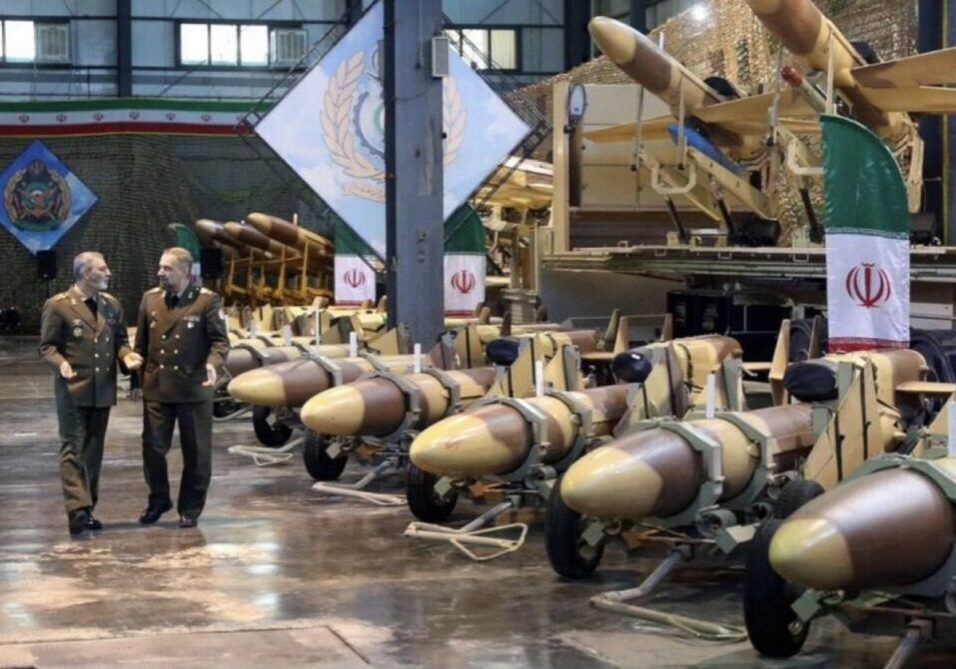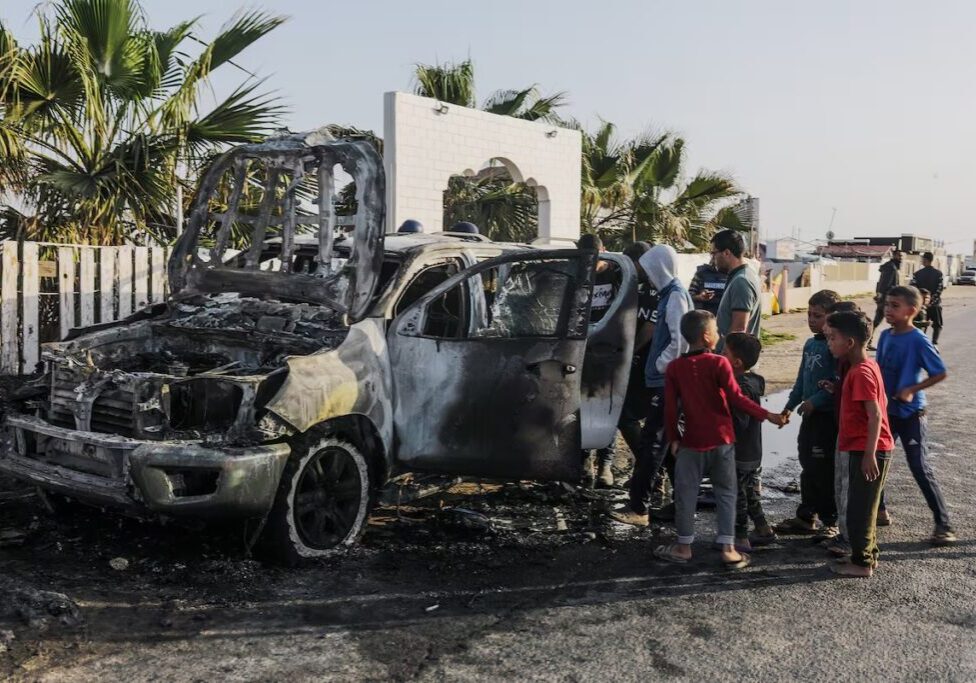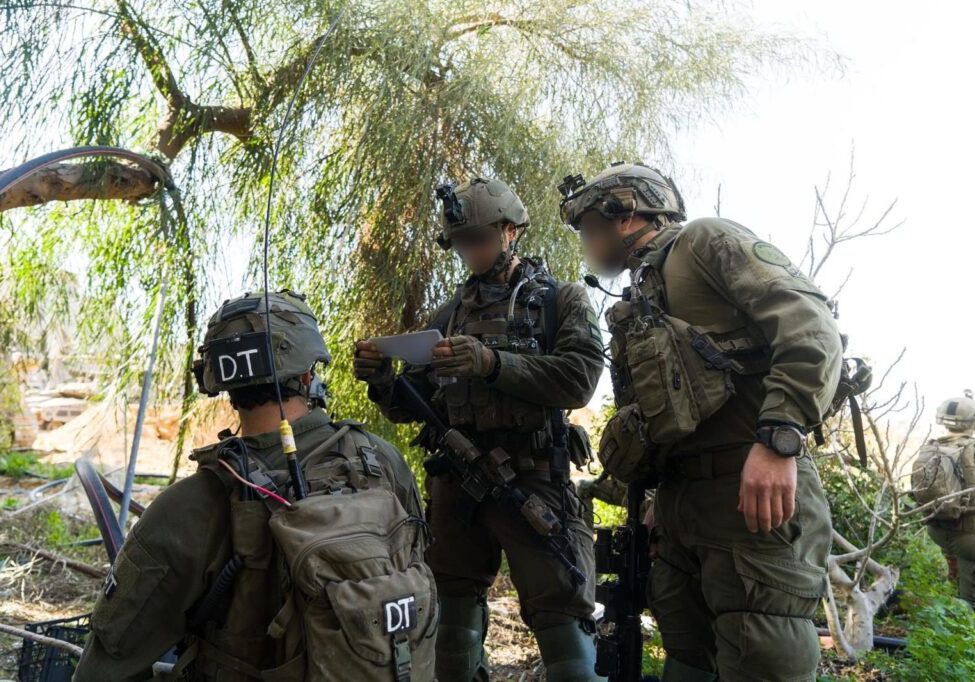Australia/Israel Review
Editorial: Can We Talk?
Sep 1, 2007 | Colin Rubenstein
Can We Talk?
Colin Rubenstein
There was a telling moment in a recent US debate for the Democratic Party’s presidential candidates. They were asked if they would promise to meet with the leaders of Iran, Syria, Cuba, Venezuela and North Korea during their first year in office. Senator Barack Obama said he would and it was “ridiculous” that the US had not done so already. Frontrunner Hillary Clinton, in a move widely interpreted as a show of her greater political maturity, said she could not promise this, because before such meetings it was necessary to “know better what the way forward would be,” adding, “I don’t want to be used for propaganda purposes.”
Obama’s answer echoed the approach of the many who urge direct negotiations with Hamas and its major sponsor, Iran, as the key to solving the problems of the Middle East, arguing negotiations are necessary for any political settlement, and even if this proves impossible, what harm can they do?
Hillary Clinton rightly pointed out that premature negotiations, without adequate preparations and reasonable prospects for success, can do significant harm.
Futile talks and summits can not only provide propaganda victories for rogue actors and help them portray their methods as successful. When the international community is using diplomatic isolation and the threat of pariah status to pressure an actor to change its behaviour, official talks can allow rogue actors to build momentum toward acceptance, to run down the clock, and to stave off efforts at concrete sanctions.
Syria’s recent overtures to Israel for negotiations are a case in point. Most Syria specialists believe that Damascus wants talks, not to seek lasting peace, but because the existence of a negotiating process would divert international pressure on the regime over tough issues, especially the murder of former Lebanese PM Rafiq Hariri.
Diplomacy is largely about communication, but direct public negotiations are only one method of communicating. For instance, the international community is currently communicating very clearly with Hamas. It is saying direct international aid and recognition depend on acceptance of the rules of the game and purposes established by the Oslo accords – that is, to establish an Israeli-Palestinian two state resolution, recognise Israel and desist from terror.
Public face-to-face meetings with Hamas would muddy the waters rather than communicate this more clearly.
Meanwhile, the idea that comprehensive US-Iran talks can resolve the nuclear stand-off and other outstanding issues such as Iranian support for Iraqi insurgents and other terror groups fails a simple test. The potential for achievements from such talks do not outweigh the potential costs.
The US has repeatedly attempted to explore a deal with Iran through various back channels with little success.
Meanwhile, the US encouraged the EU to negotiate with Iran over its nuclear program. For six years, Iran stalled, signed agreements and broke them, and scored propaganda points. Western vacillation was perceived in Iran as weakness. A new overture for direct public and bilateral Iran-US negotiations (something the Iranian regime has actually always rejected) would fail, yet would strengthen those elements of the regime who argue that there will be no significant consequences for Iran’s illegal nuclear program.
Westerners need to recognise that many authoritarian regimes, including Iran’s, often see negotiations as essentially a zero-sum game, not as an opportunity to explore mutual interests and creative arrangements.
For instance, Iranian and US interests in Iraq are mutually exclusive. The US wants Iraq to become secular, democratic and stable. But Iran’s priority is to lessen the American presence in the Middle East – and the best way to achieve this is to have the US chased out of Iraq.
Further, even where negotiations are a good idea, one must start with realism, adequate preparations, and a clear plan about what can be achieved. This is certainly the case with the proposed Middle East summit on Israeli-Palestinian issues
A final Israeli-Palestinian peace is not currently possible. Hamas, which controls Gaza, rejects and would sabotage any such deal. Meanwhile, with his Fatah party in disarray, and his hold on the West Bank uncertain, Palestinian Authority President Mahmoud Abbas, whatever his intentions, cannot convincingly claim to be able to deliver peace even in the area he does nominally control.
Therefore, negotiations in the lead up to and during the conference should focus on stablising the situation on the ground, and creating conditions where a two-state resolution may eventually become possible.
This means concentrating on three things. First, as US President Bush stated in announcing the conference, it should “help the Palestinians establish… effective governing structures, a sound financial system, and the rule of law.” Unless Abbas and PM Salam Fayyad can establish security control and an effective welfare system, the situation cannot improve.
Second, US efforts to channel Arab concern over the Iranian threat to encourage the Arab states to at last play a constructive role in Israeli-Palestinian peacemaking are very welcome.
Finally, Israeli PM Ehud Olmert says he has been meeting with Abbas in an effort to “agree on principles regarding the core issues that will lead to the establishment of a Palestinian state alongside Israel, including the borders, Jerusalem, the refugees, exchanges of land” and so on. No such deal can be implemented for the time being, but such a declaration of principles would give Abbas something to take to Palestinians as an alternative to Hamas. However, the process must be kept low key, because a highly visible failure could have negative repercussions.
Constructive dialogue with the hope of peace must be pursued in the Middle East, but not at the expense of undermining realistic peace prospects. Negotiations for the sake of negotiating will do nothing but strengthen the enemies of peace.
![]()
Tags: International Security






